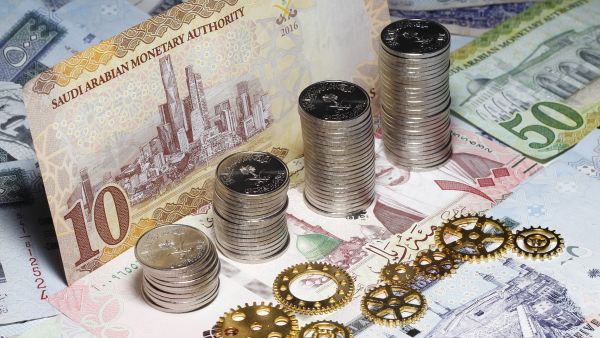ALBAWABA — Saudi Arabia has set out a plan to ease its reliance on oil revenue and limit its importance in shaping fiscal policy, its minister of finance said on Wednesday.
“Our aim is within the period to 2030 we don’t even look at the oil price,” Saudi Finance Minister Mohammed Al-Jadaan said Wednesday at the Financial Sector Conference in Riyadh, organized by Saudi Arabia’s Financial Sector Development Program partners, which are the Ministry of Finance, the Capital Market Authority, and the Saudi Central Bank.
Al-Jadaan said since the kingdom unveiled its blueprint for diversifying the economy, titled “Vision 2030”, non-oil revenue went from covering about 10 percent of budget spending to more than a third, adding that for Saudi Arabia this “means our dependence on oil revenues becomes much less and with time it will be a lot less”.
The world’s top oil exporter has long relied on the flow of petrodollars into the government’s coffers to power spending on job creation and costly infrastructure, with Saudi Aramco reporting $161 billion profit in 2022, a huge figure for the company and its main shareholder, the Saudi government.
The windfall, alongside higher production volumes, made Saudi Arabia’s economy the fastest growing in the G20 last year and helped it run a fiscal surplus of for the first time in nearly a decade, posting $27.68 billion surplus and real gross domestic product growth of 8.7 percent in 2022.
Saudi authorities are keeping spending in check and using their energy proceeds to accelerate projects that contribute to non-oil revenue generation.
“Our aim is for sustainable and predictable public investment and expenditure regardless of the oil prices,” Al-Jadaan said at the conference.
“And we have the buffers and the reserves and we have the ability to manage that,” the minister added.
With crude prices trading near $80 per barrel after skyrocketing into triple digits at the beginning of 2022 and when Russia invaded Ukraine, Saudi Arabia’s oil revenues fell in third and fourth quarters of 2022 after the initial shock of Russia’s invasion of Ukraine but reached nearly $326 billion in the full year.
“Oil revenues are very important to us as they are a catalyst to continue to invest in our vision,” Al-Jadaan said. “But it should not be a question of stopping what we are doing just because the oil price is low.”
The Saudi Ministry of Finance’s budget statement for fiscal year 2023 disclosed earmarking over $303 billion in expenditures for key projects and programs, with $19 billion allocated for various industrial and non-oil energy projects.







